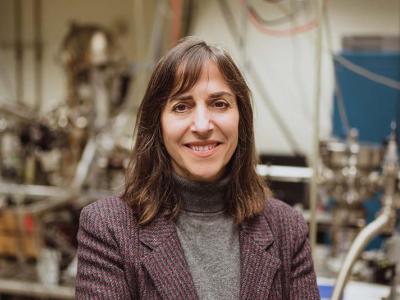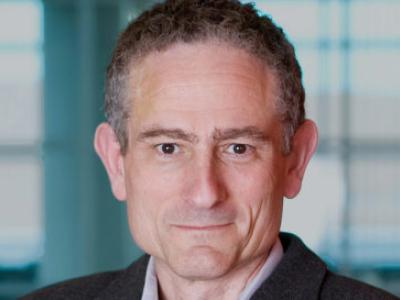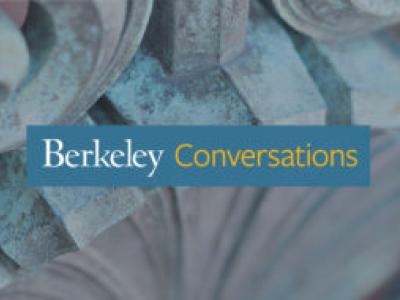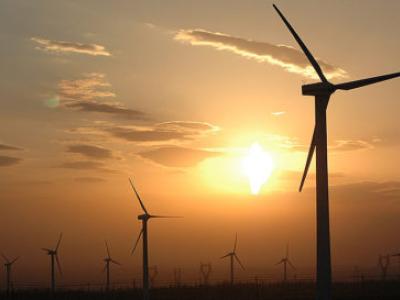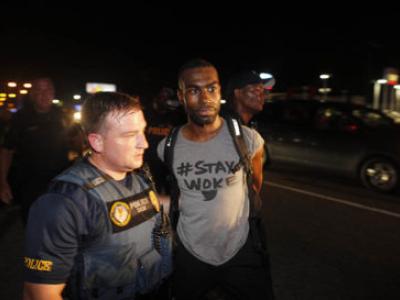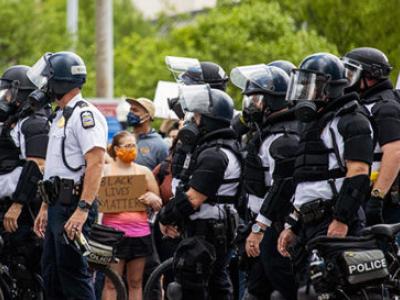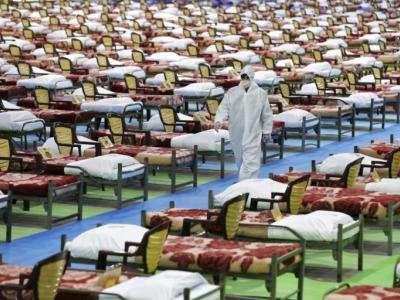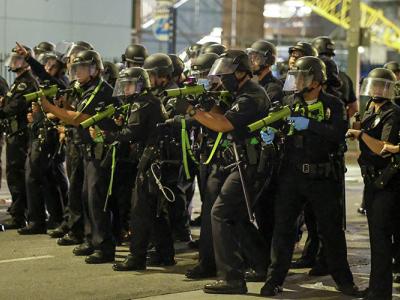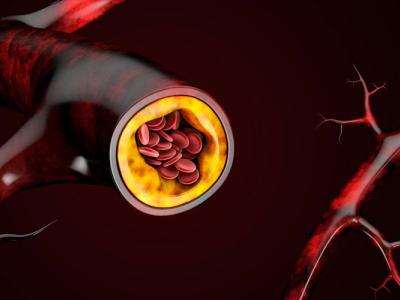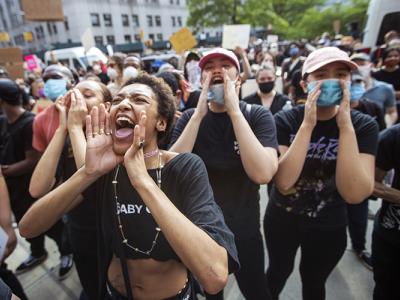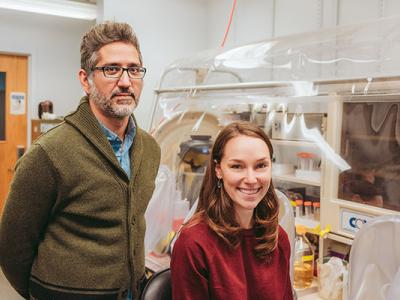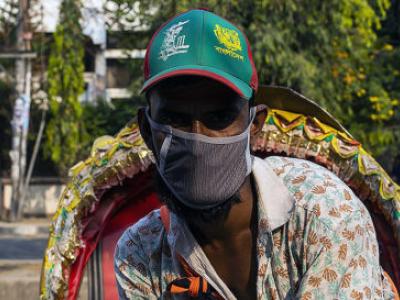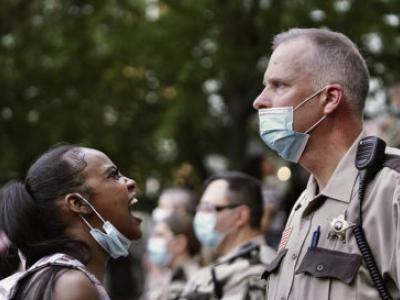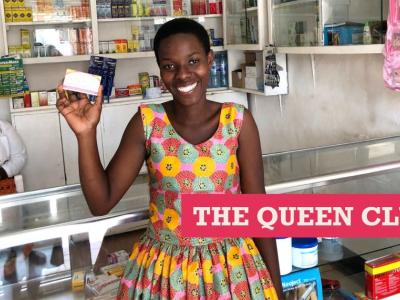CO2 concentration in fresh air is about 400 parts per million (ppm). But get a group of people packed in a closed indoor space, and CO2 concentration can rise quickly. Recent studies suggest that as levels increase above 1,000 ppm, decision-making and other cognitive abilities decline. Roya Maboudian studies the properties of nano-materials, including how their surfaces affect their performance. As a 2019-2020 Bakar Fellow, she is developing small, inexpensive and sensitive CO2 sensors.
Research News
Learn more about UC Berkeley's researchers and innovators.
Showing 1329 - 1344 of 3512 Results
Neuroscientist Corey Goodman, a longtime researcher at the University of California, Berkeley, who went on to start numerous biotech companies and, most recently, co-founded a venture capital firm, has been awarded the 2020 Gruber Neuroscience Prize.
COVID-19 is threatening the health and economic security of communities around the world, with dire implications for those living in poverty. As the pandemic unfolds, the Center for Effective Global Action (CEGA) is committed to sharing practical insights that can support evidence-based responses in the Global South.
New national report is first to use latest low renewable energy and storage prices, shows with the right policy the U.S. can avoid building new fossil fuels and increase energy sector jobs by over half a million each year, supporting recovery efforts
The racial justice movement sweeping across the country presents an opportunity to radically transform America to more equitably serve all of its citizens, panelists concluded during an online event Monday organized by UC Berkeley’s Othering & Belonging Institute.
In the turbulent days since the police killing of George Floyd in Minnesota, Jack Glaser has been following the storm of protests, including dozens of incidents in which police appeared to escalate conflicts, use excessive force and target journalists. Like millions of others in the United States and worldwide, he is alarmed by what he’s seen.
Satellite imagery and geospatial data science to understand how social dynamics influence the spatial spread of SARS-CoV-2 infections.
Emergency health measures implemented in six major countries have “significantly and substantially slowed” the spread of the novel coronavirus, according to research from a UC Berkeley team published today in the journal "Nature". The findings come as leaders worldwide struggle to balance the enormous and highly visible economic costs of emergency health measures against their public health benefits, which are difficult to see.
Protests and demonstrations, like those erupting after the death of George Floyd, a black man who was killed when a white police officer in Minneapolis pressed his knee into Floyd’s neck for nearly nine minutes, are a daily occurrence in our world. But what happens when police use crowd-control weapons, or CCWs, against those exercising their democratic rights?
Disrupted nightly sleep and clogged arteries tend to sneak up on us as we age. And while both disorders may seem unrelated, a new UC Berkeley study helps explain why they are, in fact, pathologically intertwined. UC Berkeley sleep scientists have begun to reveal what it is about fragmented nightly sleep that leads to the fatty arterial plaque buildup known as atherosclerosis that can result in fatal heart disease.
The excruciating stretch of eight minutes when four Minneapolis police officers ignored George Floyd’s pleas for one of the officers to take his knee off Floyd’s neck is the most recent occurrence in a long history of black people’s urgent cries for help being ignored by America’s white power structure. A Q&A with Nikki Jones, UC Berkeley professor of African American studies who, for 10 years, has worked with research partners to collect and analyze hundreds of video recordings of police encounters with the public.
Living near active oil and gas wells may put pregnant people at higher risk of having low birth weight babies, especially in rural areas, finds a new study of birth outcomes in California.
They’re microscopic miners. Some species of aquatic bacteria draw in dissolved iron from their watery environment and store it in specialized compartments called magnetosomes. They use its magnetic properties to navigate, sort of like ancient mariners using a lodestone to keep their bearings. Arash Komeili, Professor of Plant and Microbial Biology and one of this year’s Bakar Fellows, aims to understand what controls and maintains the microbes’ novel traits.
For some of the poorest countries on Earth, the COVID-19 pandemic has posed a life-or-death quandary: If people continue to work, the virus might spread unchecked. But if they have to stay at home to limit the contagion, hunger and malnutrition could soar.
The upheaval in response to the killing of George Floyd comes as no surprise to Stephen Menendian, director of research at UC Berkeley’s Othering & Belonging Institute, who last year released a report examining how, 50 years after the 1967 Kerner Commission first examined the causes of black unrest, little had changed in policing.
For young women in Tanzania, one of the biggest obstacles to accessing sexual and reproductive healthcare products are watchful eyes. Despite high rates of HIV and unintended pregnancy in young women, families and communities carefully monitor the actions of young girls with the intention to uphold social norms, some of which can be harmful.

